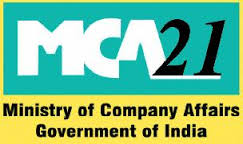
The Government of India, through the Ministry of Corporate Affairs, has made it mandatory for to file ACTIVE eForm or INC-22A. The due date for filing INC-22A was 25th April 2019.
There have been representations made to the MCA for Form INC-22A due date extension.
News coming that government has extended the deadline of filing form INC 22A (ACTIVE) to June 15, gives companies more time to comply, with a provision aimed at spotting shell companies.
The disclosure requirement, which came into effect from February, makes it mandatory for registered companies to upload pictures of their business premises and at least one director.
The last date for filing FORM INC 22A (ACTIVE),which was Thursday, April 25 is now extended till 15th June 2019.
Ministry of Corporate Affairs have received many representations from industry associations for Extension of the Due date with many companies yet to comply thereafter Ministry of Corporate Affairs decided to Extend the Due date of form INC 22A.
Startups have, in particular, pointed out that many of them operate out of homes or shared premises or office suites.
The government had launched a crackdown on shell companies as part of the anti-black money drive and these norms were follow-up measures to establish existence of registered entities. Names of thousands of shell companies were struck off as part of this drive.
This new electronic form INC 22A, which is also known as e-Form ACTIVE (Active Company Tagging Identities and Verification), was notified as part of the Companies (Incorporation) Amendment Rules, 2019 in February.
MCA VPD Service
The Ministry of Corporate Affairs on 24/04/2019 has announced the following on their homepage “VPD service will be unavailable from 8:00AM to 08:00PM IST on 24th – 25th Apr 2019 for system maintenance. Stakeholders are requested to plan accordingly.”
VPD Service means View Public Documents Service which can be accessed from http://www.mca.gov.in/mcafoportal/viewPublicDocumentsFilter.do
With VPD Service being taken down on the same last date for filing of INC22A ACTIVE eForm, there are more chances for the due date being extended for INC-22A filing.
Representation from ICSI
The Institute of Companies Secretaries of India has made a representation to the Ministry of Corporate Affairs on 22nd April 2019. In the letter, the Institute explains the difficulty faced by certain stakeholders while filing Form INC22A-ACTIVE as below:
- The Auditors’ details not getting prefilled in certain cases.
- Compliance by dormant companies.
- Companies in management disputes.
- Issues faced by corporates having a different financial year.
As the difficulties are still unresolved as on 22nd April 2019, the ICSI has requested the MCA to extend the due date for filing of Form INC-22A.
A non-compliant company would not be able to amend its Capital Structure, Change in Directorship or carry out any Merger or Amalgamation, as per the various provisions listed below:
- Changes in authorized capital (Form SH-07)
- Changes in paid-up capital (Form PAS-03)
- Changes in Director (Form DIR-12) (cessation would be allowed).
- Changes in Registered Office (Form INC-22)
- Amalgamation or Merger (INC-28)
If the form is filed within the due date, there is no fee, while late filing will attract a fine of Rs 10,000.

